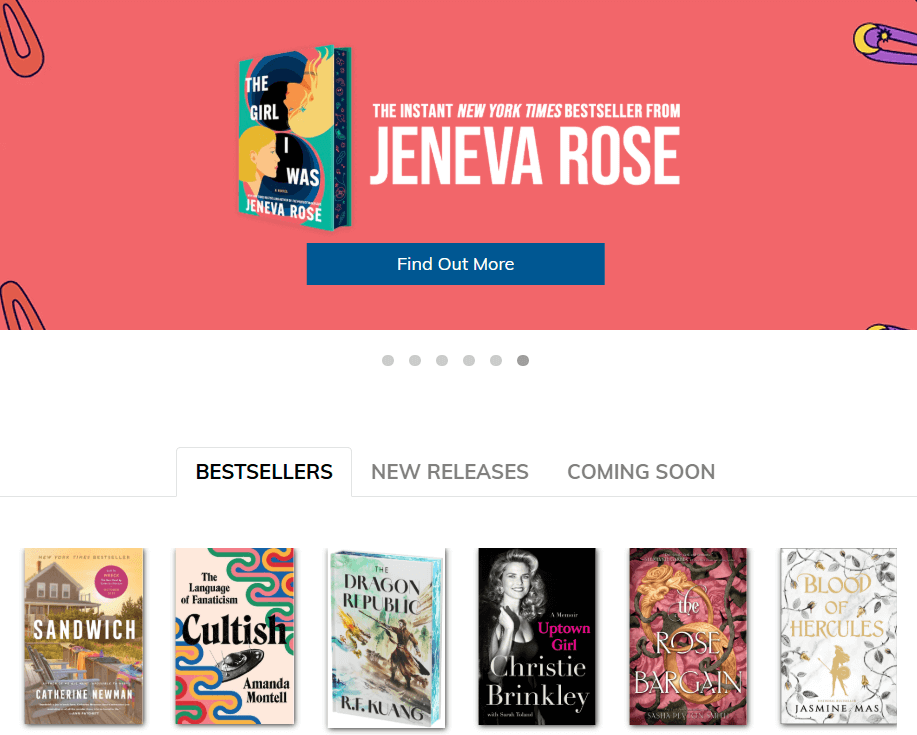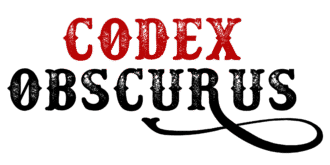
When people talk about the biggest names in books, Harper Collins is always in the mix. As one of the largest book publishers in the world, it’s been behind countless bestsellers, literary classics, and breakthrough debuts.
For any writer dreaming of seeing their work in print and the hands of readers across the globe, understanding how Harper Collins discovers authors, runs its business, and builds careers can be just as important as the writing itself.
HarperCollins is a publishing powerhouse with the reach and influence to turn a debut novel into an international bestseller. It works with some of the most recognizable names in literature, with publishing operations in 15 countries and more than 120 unique imprints.
That means your manuscript, once accepted, can land on shelves from New York to New Delhi, and in formats that span hardcover, paperback, eBook, and audiobook. For an author, that kind of exposure can feel like getting a backstage pass to the biggest literary stage on the planet.
The company operates like a finely tuned ecosystem. Editorial teams scour submissions for the next big voice, marketing departments create campaigns that can trend on social media within hours, and rights teams negotiate foreign language editions that bring your work to readers you’ve never met in places you’ve never been.
As someone who’s spent years studying how major publishers work, I can tell you that seeing the inner machinery of Harper Collins Publishing gives you a whole new respect for the scale and precision of its operations.
While many smaller presses focus on a niche, HarperCollins covers everything from high-stakes thrillers to thought-provoking non-fiction, from children’s picture books to complex fantasy epics.
Each book is part of a curated catalog designed to appeal to a vast readership, and each author benefits from decades of industry relationships with retailers, media outlets, and literary organizations.
For a writer with big ambitions, aligning with Harper Collins book publishers can mean stepping into a global network that’s been refined over two centuries.
From Print Shops to Global Giant
HarperCollins came together through mergers rooted in two historic publishing houses. Harper & Brothers, founded in 1817, merged with Row, Peterson & Company to become Harper & Row. In Britain, William Collins, Sons, established in 1819, brought in fiction and educational titles.
News Corp acquired both in 1987, uniting them to form HarperCollins in 1989. The publisher now spans the US, Canada, UK, Australia, New Zealand, India, Brazil, and China.
Over two centuries, HarperCollins has evolved from printing in small-scale workshops to managing global distribution channels that put books in the hands of millions every year.
That long-standing foundation gives it a reputation for stability and influence, qualities that matter to both authors and industry partners. Having such deep roots also means HarperCollins has been part of major cultural shifts, from the early days of mass-market publishing to the current age of digital storytelling.
In the world of Harper Collins Publishing, that backing can mean access to relationships, platforms, and opportunities that would be almost impossible to create on your own.
Think of it like the publishing world’s equivalent of a transatlantic ocean liner, built on decades of craftsmanship, but still equipped with the engines to navigate the fast-moving digital era. It carries the legacy of publishing milestones while constantly adapting to changing reader habits, new formats, and emerging markets.
Global revenue nearly hit US$2 billion in 2021, signaling its strength among the Big Five in English-language publishing. In the competitive arena of global publishing, that level of revenue speaks to more than size.
It shows the company’s ability to maintain market relevance across continents, languages, and formats. For someone aiming to understand the industry’s power players, this scale is a reminder of just how much influence a single publishing house can hold over what the world reads.
What is HarperCollins famous for?
Readers recognize HarperCollins for a lineup of legendary authors and titles that have shaped modern literature and pop culture. It maintains the rights to Tolkien’s The Hobbit and The Lord of the Rings, Agatha Christie’s timeless mysteries, and the C.S. Lewis canon including The Chronicles of Narnia.
These works continue to generate new editions, adaptations, and merchandise decades after their release, proving the enduring value of HarperCollins’ catalog.
Paulo Coelho, whose The Alchemist has sold more than 65 million copies worldwide, once said, “The book is a phenomenon because it speaks to everyone’s search for meaning,” a sentiment that captures how HarperCollins has been able to connect authors with readers on a global scale.
The range of voices under the Harper Collins publishing umbrella is another reason for its strong identity in the industry.
Through imprints like HarperVoyager for speculative fiction, HarperPerennial for modern classics, Harlequin for romance, Thomas Nelson for Christian titles, and Amistad Press for African-American interest, the company has built a presence in nearly every major book market.
Each imprint comes with its own editorial style, marketing strategies, and reader base, giving authors the advantage of being part of a brand that already speaks directly to their target audience.
Recent innovation reflects the company’s ability to adapt to emerging technology and reader behavior. The 2024 licensing deal with Microsoft to incorporate Harper Collins book content into AI training is an example of the publisher looking beyond traditional distribution channels.
This move positions HarperCollins as a participant in shaping how literature might be accessed, understood, and repurposed in the future. Under CEO Brian Murray’s leadership, digital revenues have soared, supported by expansion into foreign-language markets and aggressive growth in eBook and audiobook sales.
For authors, this means that partnering with Harper Collins book publishers could open the door to audiences who consume stories through screens, speakers, and platforms yet to be developed.
What is the controversy with HarperCollins?
HarperCollins has navigated several high-profile controversies over the years, each one putting a spotlight on how a major publisher operates under public scrutiny.
Labor dispute and strike (2022–2023)
About 250 unionized employees in New York, including editorial assistants, marketers, and publicists, walked out in protest over wages, benefits, and workplace protections. They pushed for fairer pay scales, better parental leave, stronger union protections, and a genuine commitment to diversity.
After months on the picket line and national media coverage, they secured a new contract that raised starting pay from $45,000 to $50,000 by 2025, added a $1,500 bonus, improved overtime rules, and delivered other benefits.
This wasn’t just a win for HarperCollins staff. It rippled through the industry, with publishers like Macmillan and Hachette adjusting their own entry-level salaries soon after.
As someone who’s followed labor movements in publishing, I remember how this particular strike sparked bigger conversations about how entry-level publishing staff often struggle to live in expensive cities like New York.
E-book and pricing controversies
In 2012, HarperCollins was implicated in the US v. Apple case, which centered on alleged e-book price fixing.
The settlement involved refunds to customers and marked a turning point in how publishers approached digital pricing strategies. It also served as a wake-up call for the growing influence of digital book sales on publishing economics.

Cultural controversies
The company faced backlash for withholding Chris Patten’s East and West after a reported intervention from Rupert Murdoch, allegedly to avoid upsetting Chinese authorities.
Another controversy erupted when a HarperCollins atlas omitted Israel from Middle East maps. Public criticism was swift, leading to an apology and the destruction of unsold copies.
Incidents like these showed how political sensitivities can influence publishing decisions and how quickly those choices can draw global attention.
Legal disputes over authors and content
In a highly publicized case, HarperCollins sued Lindsay Lohan after paying her a $350,000 advance for a memoir that was never delivered. In 2020, HarperCollins joined other major publishers in suing the Internet Archive over its digital lending practices, arguing it violated copyright law.
Then, in 2022, the release of a controversial Anne Frank-related book sparked international backlash over disputed claims, leading to its withdrawal in some markets.
Controversies like these underline how Harper Collins publishing operates in a space where business decisions can quickly become cultural flashpoints. In many ways, the company functions like a political figure. Its choices invite both passionate support and equally passionate criticism.
As someone who has worked around publishing, I can say these moments remind you that the business of books isn’t always a quiet corner of the arts; sometimes, it’s front-page news.
Who is the CEO of HarperCollins?
Brian Murray has held the position of President and Chief Executive Officer of HarperCollins since 2008. Under his leadership, harper collins publishing has evolved from being heavily focused on traditional print into a dynamic global and digital powerhouse.
He has overseen acquisitions like Thomas Nelson, Harlequin, and other strategic imprints that have expanded the company’s reach across genres, languages, and readerships. These moves, combined with investments in digital platforms, have pushed annual digital revenue to more than $350 million.
Murray’s tenure hasn’t been about chasing every trend. He’s built a balance between embracing new opportunities and safeguarding the company’s heritage. At a UBS media conference in December 2024, he noted the “surprising strength of print books” even in an era where digital formats and audiobooks are climbing fast.
His remarks echoed what many industry insiders have quietly admitted: readers still value the tactile experience of a physical book, and HarperCollins is positioned to serve both markets.
The fiscal year 2023 was a difficult chapter for HarperCollins, with sales dropping 10% and profits slipping 45%. Murray approached these numbers with composure, focusing on operational efficiency while preparing for recovery through global market expansion and technological partnerships.
His approach could be compared to a skilled chess player, planning immediate moves like boosting eBook sales and audiobook offerings, while also thinking several moves ahead through acquisitions, foreign-language growth, and strategic content licensing deals.
From my perspective, Murray’s leadership shows the kind of steady hand that can guide a company through both storms and smooth waters. In a business where market shifts can feel as unpredictable as the weather, his mix of adaptability and long-term vision keeps Harper Collins book publishers competitive on a global scale.
How do I get my book published by HarperCollins?
You must understand that HarperCollins receives thousands of submissions every year, so Harper Collins publishing typically requires authors to work through a literary agent. Direct pitches without representation rarely land on the desk of an acquisition editor, and even when they do, the odds of success are slim.
In the traditional publishing ecosystem, an agent acts as both your advocate and your filter, making sure your manuscript is strong enough to compete with the best in the market before it’s ever seen by Harper Collins book publishers.
Think of it like the publishing world’s equivalent of a transatlantic ocean liner, built on decades of craftsmanship, but still equipped with the engines to navigate the fast-moving digital era.
The first step is learning the landscape. HarperCollins operates dozens of imprints, each with its own editorial focus, style, and target audience.
HarperVoyager specializes in science fiction and fantasy, Amistad champions African-American voices, One More Chapter focuses on digital-first commercial fiction, and HarperTrue publishes inspirational and real-life stories.
Submitting to the wrong imprint is like sending a thriller manuscript to a children’s picture book editor. You lose valuable time and opportunity.
Finding the right literary agent is equally important. You want someone with a proven history of selling to Harper Collins Publishing or other Big Five houses, as they’ll know the decision-makers, the editorial tastes, and the seasonal trends.
Agents often hear about upcoming acquisition needs before they’re made public, giving your work a better chance of hitting the market at the right time.
Your manuscript must be flawless before it ever leaves your desk. That means several rounds of self-editing, feedback from trusted beta readers, and potentially working with a freelance editor to ensure your hook, pacing, and prose are at their strongest.
A compelling synopsis and market positioning statement can tip the scales in your favor, showing HarperCollins exactly where your book belongs in its catalog and why it will sell.
Submission windows for some digital-first imprints, like One More Chapter or HarperVoyager’s periodic open calls, can be golden opportunities for unagented writers. These are rare, so setting up alerts, following imprint social media accounts, and checking submission pages regularly is worth your time.
Networking also plays a big role. Attending writing conferences, book fairs, and industry events where HarperCollins editors or agents are speaking can create the personal connection that helps your submission stand out.
Building a credible author platform, through a professional website, active social media presence, or a growing newsletter audience, shows the publisher you have a readership ready and waiting.
You’ve probably experienced the thrill of having your work even considered by a top publisher. In my own journey, preparing a query letter tailored to a specific imprint made all the difference in getting an agent’s attention.
For perspective, Publishers Marketplace reports that agents close more than 80% of major publisher book deals, meaning your path to HarperCollins most likely runs through them.
The process takes patience, persistence, and a willingness to treat your manuscript like a product you’re bringing to market, because in the world of Harper Collins book publishers, that’s exactly what it is.
Why HarperCollins Remains a Top Choice for Authors
You have insights now into HarperCollins, Harper Collins Publishing, and how one of the Harper Collins book publishers giants operates.
In my opinion, HarperCollins remains a publishing force to be reckoned with: its history offers credibility, its author list boosts prestige, and its controversies prove it operates on a stage where stakes are high.
A company that can weather public disputes, adapt to market shifts, and still release some of the world’s most influential books is a company that knows how to survive and thrive in a competitive industry.
For an aspiring author, the draw of HarperCollins goes far beyond a name on the spine. The scale of its infrastructure means your book could benefit from seasoned editors who understand how to refine a story until it hooks readers from the first page.

The marketing teams know how to position a title so it reaches bookstores, libraries, online retailers, and even international markets that you might never have imagined. The global distribution network is a machine built to give your work the best possible launch, whether it’s in hardcover, paperback, eBook, or audiobook form.
It’s like stepping into the major leagues of publishing: the competition is fierce, but the rewards can be life-changing. I’ve seen authors go from debut signings at small literary festivals to book tours spanning multiple countries, all because they had the right publisher backing them.
In the world of Harper Collins Publishing, that backing can mean access to relationships, platforms, and opportunities that would be almost impossible to create on your own. For writers with both talent and persistence, it’s the kind of partnership that can turn a personal dream into a career with global reach.




